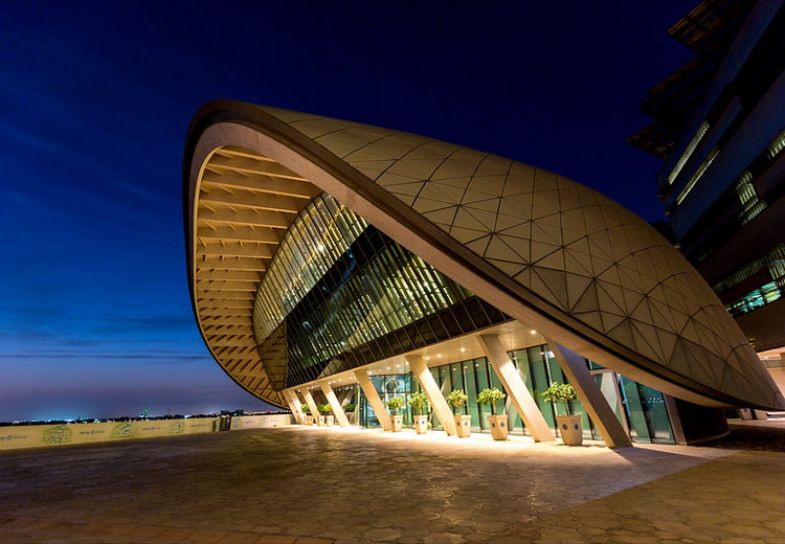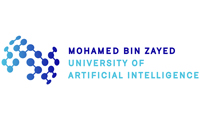
At MBZUAI, a new robotics department is being launched to deliver high-impact research that will prove essential to this emerging field
In the four years since its inception, Mohamed bin Zayed University of Artificial Intelligence (MBZUAI) has already garnered a global reputation for its high-quality offerings. A graduate, research-driven university, MBZUAI has three departments – computer vision, machine learning and natural language processing – and it has recently announced the foundation of a new robotics department. Over the next three years, the robotics department will grow to more than 15 faculty members, including one professor and two assistant professors to start in September 2023.
The new robotics department will serve as an academic home for faculty, scientists and students, offering master’s and doctoral programmes. Currently ranked 19th in the world for research in its areas of specialisation – artificial intelligence, machine learning, computer vision and natural language processing – by Computer Science Rankings, MBZUAI is aiming to develop a robotics department that produces high-impact research and prepares exceptional student researchers for careers at the cutting edge of academia, industry and government.
“Our world-leading robotics researchers, students and industry partners collaborate to advance discoveries in all aspects of robotics including perception and applied machine learning, human-robot interaction, cognitive and soft robotics, and swarm intelligence,” says Ken Goldberg, a world leader in robotics and automation and a professor at the University of California, Berkeley. Goldberg is assisting MBZUAI in recruiting and building its robotics team. “As a research-oriented department, robotics focuses on human-centred and autonomous robotics research,” Goldberg says.
Rather than focusing on new robot hardware, the robotics department will prioritise robot learning and algorithm development. Other prominent areas will include deep learning, control theory, robot manipulation and quadruped locomotion. Robot-assisted surgery, precision agriculture and infrastructure monitoring will also be taught within the department.
MBZUAI faculty published more than 350 papers in high-impact conferences and journals in 2022, and chaired global conferences including the International Conference on Machine Learning, the Conference on Empirical Methods in Natural Language Processing, the Conference on Uncertainty in Artificial Intelligence, the 60th annual meeting of the Association for Computational Linguistics, and the Conference on Causal Learning and Reasoning. Led by university president Eric Xing, MBZUAI currently boasts 52 faculty members, 56 per cent of whom came to Abu Dhabi from the world’s top 100 AI institutions.
More faculty appointments are imminent in 2023 and, with aims to achieve a student to faculty ratio of 4 to 1, MBZUAI will continue to provide a hands-on research experience. All 202 students are required to take part in a mandatory internship, which provides industry experience that blends practical skills with professional development and mentorship. With a diverse student body of more than 35 nationalities, all courses and meetings are conducted in English, and students are provided with full tuition, medical aid and housing.
The establishment of a skills-based curriculum will allow students at the robotics department to engage in collaboration within and across domains including computer vision, machine learning and natural language processing. The robotics department aims to translate impactful research into tomorrow’s advancements in robotic technologies. Faculty, scientists, post-doctoral fellows, students and staff are encouraged to try their hand at founding the next great start-up.
“Helping to grow an all-new robotics department is a generational proposition,” Goldberg says. “Faculty will help mould an institution in their own image, build infrastructure suited to purpose, empower young minds to explore bold solutions and, in the process, help a young and up-and-coming robotics ecosystem leapfrog the challenges of top, global economies. Robotics has an outsized role to play in the global economy of the future, and Abu Dhabi is the ideal place for academics to make their mark.”
Although robots have been around for centuries, robotics as an industry is still relatively new and highly dynamic. Economic forecasters see robotics, particularly in developed economies, as an industry with tremendous growth potential. MBZUAI supports the breadth and depth of robotics research within, as well as peripheral to, robotics as an industry.
The national economy in the United Arab Emirates aims to play a leading role in many of the technologies that will shape the future of the entire planet in the years to come. The founding of MBZUAI was partly in response to the UAE’s National Strategy for Artificial Intelligence 2031. Following the launch of this strategy, the country became the first in the world to appoint a Minister of State for Artificial Intelligence.
The establishment of a robotics department represents a continuation of the UAE’s commitment to future-first innovation. This vision is shared by MBZUAI, which is supporting the UAE to find solutions to the world's most pressing challenges with transformative research in areas such as healthcare, education and climate.
This year, the UAE will host COP28, the global meeting on climate change, as well as the IROS 2024 International Conference on Intelligent Robots and Systems, making it an ideal place to foster a collaborative global community of learners interested in the field of robotics.
As the robotics department establishes itself, it will join MBZUAI’s other departments in cementing the university as a centre of ground-breaking academic and research initiatives. Within three months of the inaugural commencement of the class of 2022, 81 per cent have confirmed employment or further study plans. Of those, 95 per cent will remain in the UAE to continue contributing to Abu Dhabi’s AI ecosystem.
Find out more about MBZUAI.

